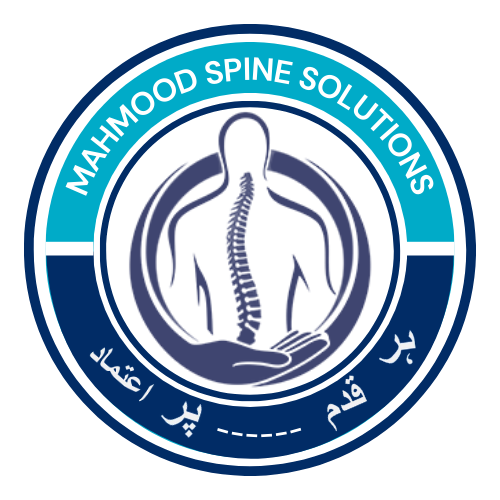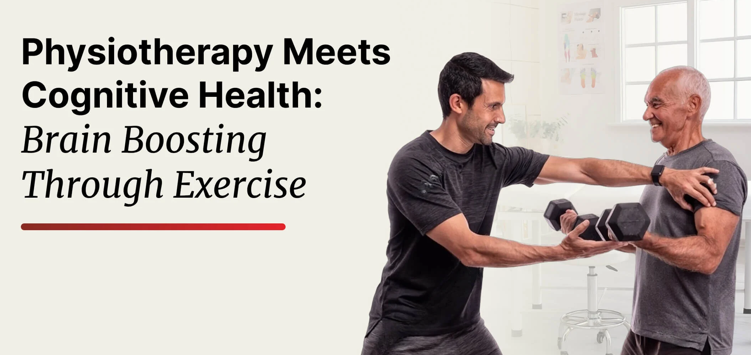Brain Boosting Through Exercise
As physiotherapists, we focus on improving our patients’ physical health and mobility. However, it’s also crucial to consider how exercise and physical activity can influence cognitive health. Recent research has highlighted the significant impact that physical activity has on brain function, underscoring the importance of expanding our knowledge to include cognitive benefits.
This article will explore the connection between physical activity and cognitive health, emphasizing how exercise can enhance brain function. Additionally, we’ll provide useful strategies on how to incorporate exercise into therapy plans to support and improve cognitive health in your patients.
What Is Cognitive Health?
As professional physiotherapists, it’s essential that we focus not only on our patients’ physical fitness but also on their cognitive health.
Cognitive health refers to a person’s ability to process, store, and retrieve information, as well as their capacity to make decisions, solve problems, and maintain focus. Maintaining good cognitive health is vital for a fulfilling and enjoyable life. However, cognitive impairments can significantly affect a patient’s quality of life.
Common examples of cognitive challenges include:
- Memory loss
- Difficulty concentrating
- Trouble learning new information
These cognitive difficulties can make it harder for patients to manage daily activities, maintain relationships, and perform their work-related tasks.
How do cognitive problems arise?
Cognitive health can be influenced by several factors. Some of the most common causes include:
- Aging: As people age, the brain’s ability to process, store, and retrieve information diminishes, often leading to memory difficulties, trouble concentrating, and an overall decline in cognitive function.
- Illnesses: Conditions like Alzheimer’s, Parkinson’s disease, and stroke can negatively impact cognitive health.
- Injuries: Head injuries or traumatic brain injuries can cause cognitive impairments, especially when the brain damage is severe.
- Stress and anxiety: Chronic stress and anxiety can impair both memory and focus.
- Sleep disorders: Conditions like sleep apnea or insomnia can disrupt cognitive function, as the brain and body don’t get enough rest.
As a physiotherapist, you have the opportunity to help your patients improve and safeguard their cognitive health through exercise. We’ll explore how physical activity can support cognitive function in more detail shortly.
What Role Do Exercise and Physical Activity Play?
Recent studies have consistently demonstrated that regular exercise and physical activity are crucial for maintaining cognitive health. For instance, the study “Physical Exercise as a Preventive or Disease-Modifying Treatment of Dementia and Brain Aging,” published in the Journal of Alzheimer’s Disease, provides valuable insights.
This study conducted a meta-analysis of 16 randomized controlled trials to evaluate the impact of physical activity on the brain and cognitive function. The findings revealed that engaging in regular physical activity helps reduce the risk of cognitive decline and dementia while enhancing cognitive performance in older adults.
But how does this work exactly?
Exercise enhances the following three key aspects of brain health:
- Increased brain energy: Physical activity boosts blood flow to the brain, improving the delivery of oxygen and nutrients. This is vital for brain health, as the brain requires significant energy to function effectively.
- Synapse formation: Regular exercise triggers the release of hormones such as growth hormone and Brain-Derived Neurotrophic Factor (BDNF), which support the growth of brain cells and the creation of new synapses. These synapses are essential for communication between different areas of the brain, forming the foundation for learning and memory.
- Reduced stress hormones: Exercise also helps lower stress and anxiety, which can have harmful effects on the brain and contribute to cognitive issues. Physical activity reduces the production of stress hormones like cortisol and adrenaline, thereby helping to alleviate stress and anxiety.
Practical Applications for Physiotherapists
Now that we’ve explored the theory behind the connection between exercise and cognitive health, let’s look at how to apply it practically. Various forms of exercise can benefit your patients’ cognitive function, and you can tailor recommendations based on their specific needs. Here are some effective options:
- Cycling to Boost Brain Power:
Cycling can have a positive effect on cognitive health. A study from the University of Illinois in 2013 examined how cycling impacted the brains of young adults. After six months of regular cycling, participants experienced an increase in gray matter, particularly in areas associated with attention and processing speed.
- Swimming to Enhance Memory:
Swimming also benefits cognitive health, particularly in older adults. Research published in the Journal of Science and Medicine in Sport looked at the effects of swimming on cognitive function. One group swam for 50 minutes three times a week, while the control group remained inactive. The swimmers showed notable improvements in working memory and processing speed, as well as enhanced mood. The complex nature of swimming, which involves both aerobic and anaerobic exercise, likely improves blood circulation to the brain and promotes neurotrophins that help generate new brain cells and synapses.
- Retro Sports for a Younger Brain:
Aerobics, a popular exercise from the ’80s, is more than just a mood booster—it also helps strengthen brain function. A study by Erickson et al. (2011) found that older adults who participated in regular aerobic exercise had a 2% increase in hippocampal volume, a part of the brain crucial for memory formation. This growth in hippocampus size was linked to improved cognitive function.
- Balance Exercises:
Balance training exercises challenge the body’s visual and vestibular systems, which can stimulate brain activity. These exercises help the brain form new neural connections, making it more resistant to age-related damage and supporting long-term cognitive function.
- Strength Training:
Strength training can improve blood flow to the brain, ensuring it receives more nutrients and oxygen, which support cognitive health. Research indicates that strength training enhances cognitive abilities, including working memory, attention, and concentration.
By incorporating these exercises into therapy plans, you can help your patients boost their cognitive health alongside their physical well-being.
About Authors
Dr. Muhammad Mahmood Ahmad is a Spinal as well as an Orthopedic Surgeon with over 14 years of experience currently practicing at Razia Saeed Hospital, Multan.







